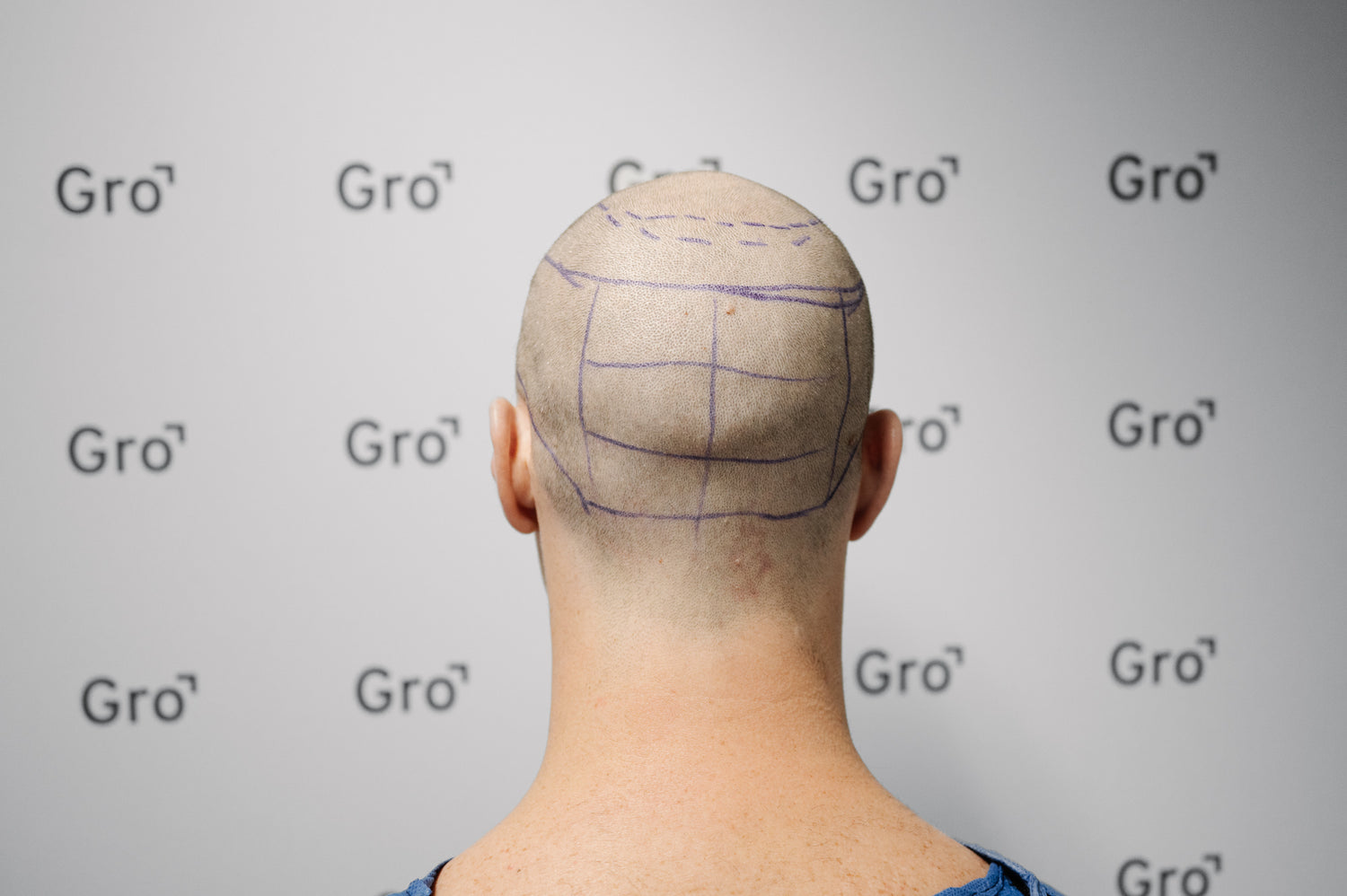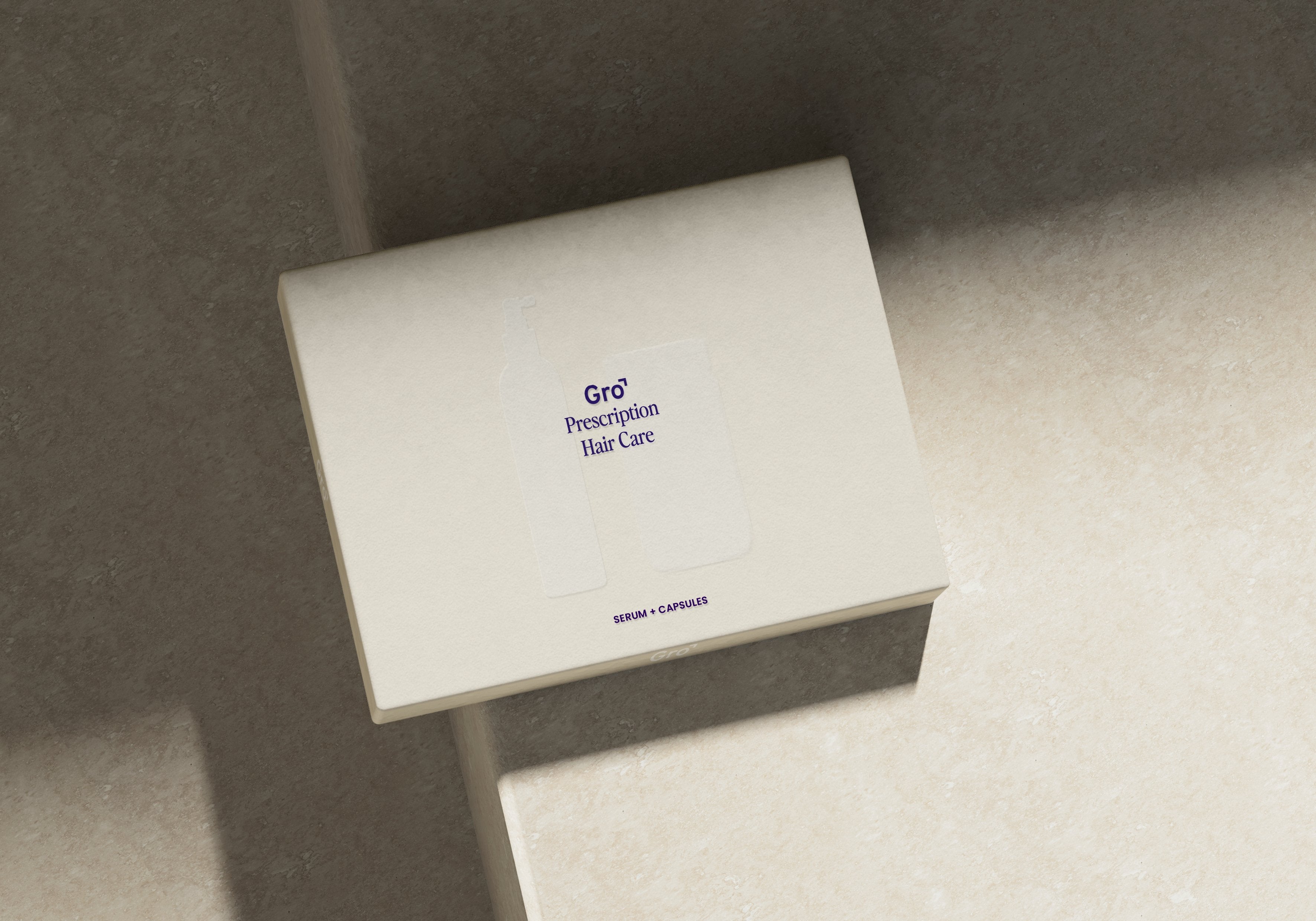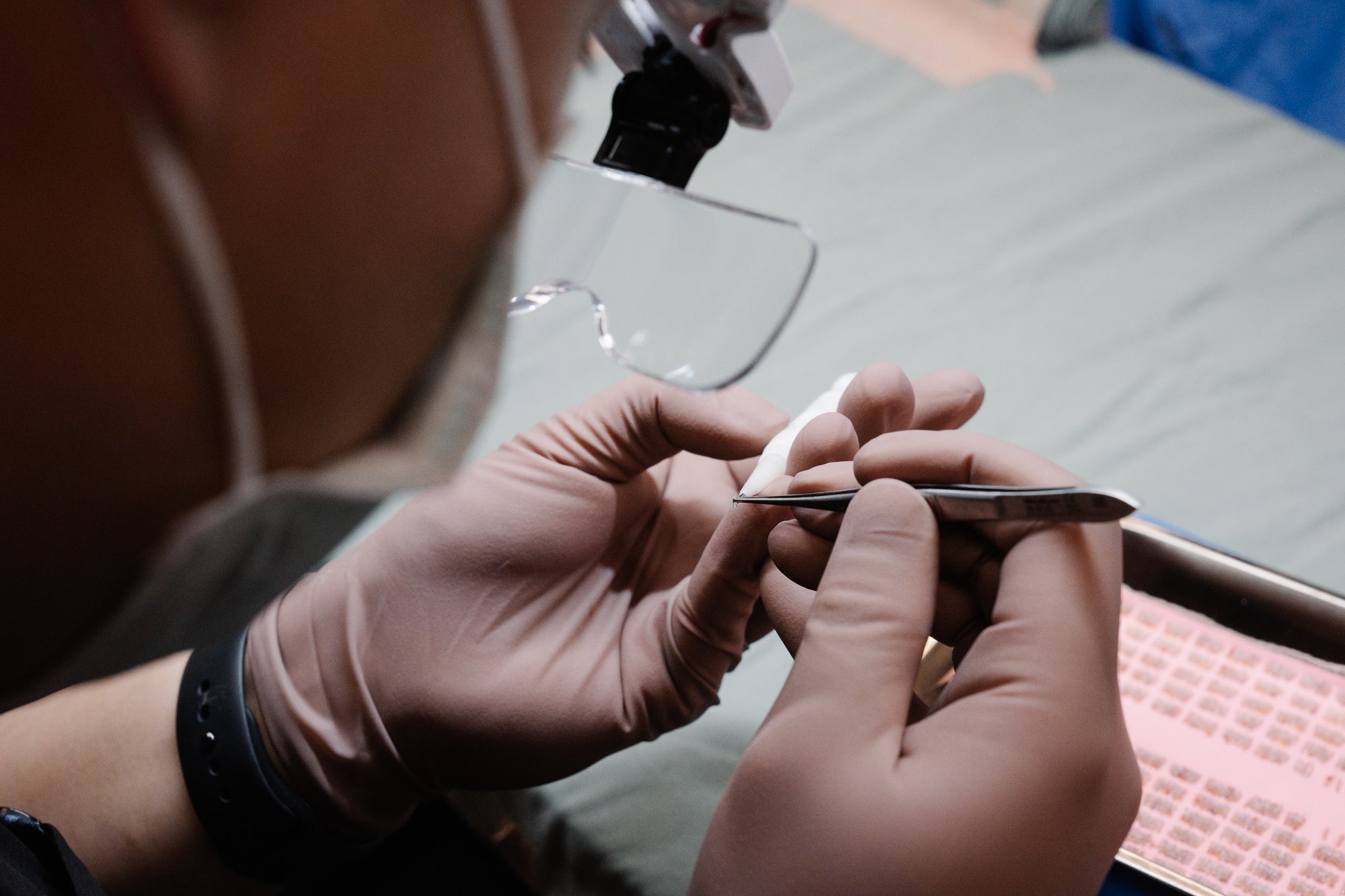Hello again in our Hair Loss 101 series! Today, we're venturing into the fascinating world of hair transplant techniques. With various methods out there, it can be a bit like navigating a maze. Let's clear the path and focus on what sets each technique apart, including Gro Clinics' innovative PFP approach.
Summary |
|
1. Understanding Hair Transplantation:
Hair transplantation is a technique that moves hair follicles from one part of the body, known as the 'donor site', to a balding or bald area, known as the 'recipient site'. It's primarily used to treat male pattern baldness.
2. The FUT Method (or strip method):
Follicular Unit Transplantation (FUT) is one of the older methods. It involves removing a strip of skin with hair from the donor area (usually the back of the head). This strip is then divided into individual grafts containing one or several hair follicles.
Pros: Maximises the number of grafts transplanted in one session.
Cons: Leaves a linear scar in the donor area and requires a longer recovery period.
3. The FUE Technique:
Follicular Unit Extraction (FUE) is a more modern technique. Here, individual hair follicles are extracted directly from the scalp and implanted into the balding areas.
Pros: Minimises scarring, as no strip of skin is removed. Recovery time is generally quicker and less painful.
Cons: Can be more time-consuming and may require multiple sessions.
4. Gro Clinics' PFP Approach: The Best of Both Worlds
At Gro Clinics, we've developed our own unique approach called 'PFP' – a finely tuned blend of micro-FUE and direct implantation methods. This innovative technique offers several advantages:
Precision and Care: Each follicle is extracted and implanted with meticulous attention to detail, ensuring optimal placement, angle, and depth.
Minimally Invasive: The procedure is less invasive than traditional FUT, resulting in minimal scarring and quicker recovery.
Natural Results: By combining micro-FUE and direct implantation, PFP achieves a more natural-looking outcome, enhancing the overall aesthetic.
5. Choosing the Right Technique for You
Deciding on the right hair transplant technique depends on various factors like the extent of your hair loss, the quality and quantity of your donor hair, and your personal preferences. A thorough consultation is essential to make the best choice.
7. The Gro Clinics Difference
At Gro Clinics, our focus is on providing personalised care and using state-of-the-art techniques like PFP to achieve the best results for our clients. Our team will guide you through the process, ensuring that your hair restoration journey is smooth, comfortable, and tailored to your needs.
Hair transplant techniques have evolved significantly over the years, offering more options and better results than ever before. Whether it's traditional methods like FUT and FUE or innovative approaches like PFP, the goal remains the same – to restore not just your hair, but your confidence and satisfaction. In our next Hair Loss 101 post, we'll delve into what you can expect before, during, and after a hair transplant. Remember, at Gro Clinics, your journey to a fuller head of hair is in expert hands.
Ready to take the next step? We have clinics all around Australia and New Zealand including:
- hair transplant clinic in Brisbane
- hair transplant clinic in Gold Coast
- hair transplant clinic in Sydney
- hair transplant clinic in Melbourne
- hair transplant clinic in Perth
- hair transplant clinic in Auckland
- hair transplant clinic in Pacific Fair
Why not give us a call on 1300 787 563 to start your hair growth journey.












